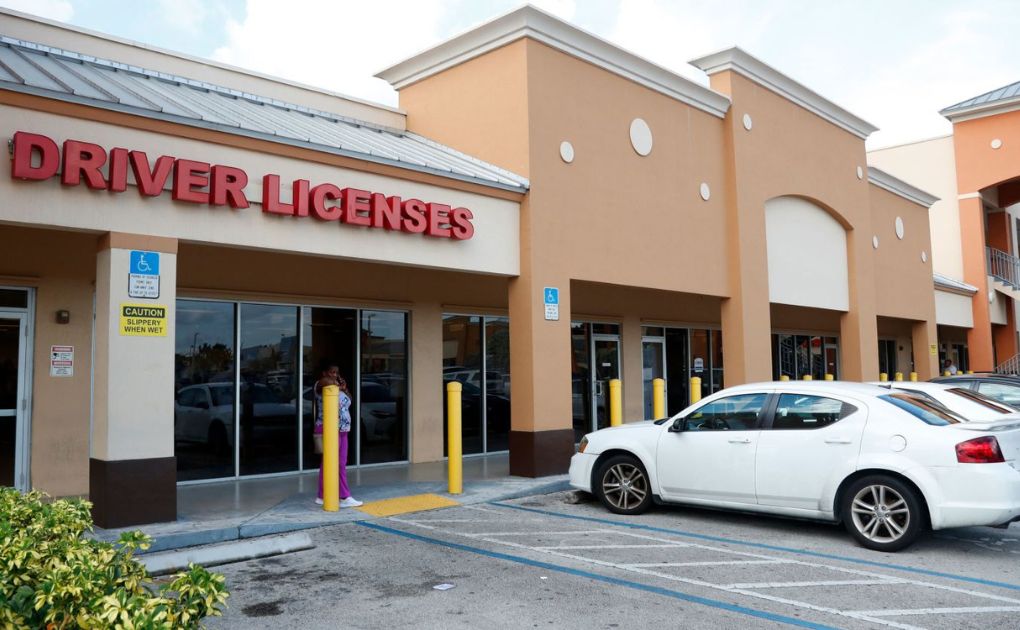
A couple dozen transgender Floridians and advocates Thursday spoke against legislation that they described as an anti-LGBTQ attack.
And they left even angrier than when they arrived.
Not only because the bill (HB 1639) has now cleared its second of three House committees on a 12-6 party-line vote, but also because of some of the language used by those pushing the measure.
The measure would require driver’s licenses to display a person’s sex assigned at birth rather than their gender identity.
It would also require all health insurance plans in the state that cover trans-related health care to cover detransition care for “an appropriate additional premium.”
It additionally would mandate health plans to cover therapies to “treat a person’s perception that his or her sex …. is inconsistent with such person’s sex at birth.”
Quinn Diaz, the public policy associate for LGBTQ rights group Equality Florida, said the bill “undermines” federal law, U.S. Supreme Court protections and the First Amendment “by forcing trans Floridians to carry identity documents that they do not agree with if they wish to participate in public life.”
The Florida Department of Highway Safety and Motor Vehicles beat lawmakers to it, recently announcing a policy that prevents transgender Floridians from changing the listed gender on their driver’s licenses.
But in an interview after the meeting, House bill sponsor Dean Black, R-Jacksonville, said it was important for that rule to be “enshrined in Florida statute that your sex on your driver’s license is biologically-based.”
“It will be simply about biology,” Black said.
For Diaz, who is trans, it’s about a lot more than that.
The bill “is unquestionably another attack on our rights and dignities, and has already worked to stoke fear and panic,” Diaz said when addressing the House Insurance and Banking Subcommittee on Thursday. “This is not compassion.”
But the Republican bill sponsors insisted it was, using that very term several times.
“It allows people (who are transitioning or detransitioning) as they are trying to find their wholeness to be able to find coverage,” said Rep. Doug Bankson, R-Apopka, another bill sponsor, referring to the insurance provisions.
‘Many, many people’ regret getting ‘mutilated,’ GOP lawmaker says
Bankson, a Christian minister who wrote a how-to book on strengthening marriages, also said the license provision would help medical professionals providing emergency care to know the “underlying characteristics of their psychology.”
But, when asked by another lawmaker if he had heard an example of someone’s driver’s license gender creating a negative impact on the help they received, Bankson didn’t directly address the question.
Black said there’s research that shows there are “many, many people” who regret getting “mutilated.”
That was slammed by those testifying Thursday, as well as by some of the bill’s Democratic opponents.
“When we talk about compassion, the term ‘mutilate’ was used to describe the health care,” said Rep. Christine Hunschofsky, D-Parkland. “Every year we are faced and we are confronted with bills that are not coming because of any data that supports why they are necessary, and they feel like attacks. And they feel like attacks because of the words used to defend them.”
Black later defended the terminology by saying the words came from those who had regretting transitioning.
Hunschofsky also criticized the higher premiums for trans healthcare.
“It was mentioned that not everybody should have to cover transgender care,” she said. “We didn’t mention what other care people feel they shouldn’t have to cover if they’re not taking advantage of it.”
Those testifying countered Black’s “many, many people” claim, pointing to research that shows less than 2% of people are trans, with 1% of those who got transition surgeries regretting it, mostly because of social pressure and discrimination.
Bankson said that minority should not be excluded from needed medical care.
Moreover, Bankson said the legislation was about “the laws of nature itself,” adding that the majority of people who “had chosen an alternative lifestyle” had been affected by “some traumatic issue, whether it was a sexual attack, something along those lines, or whether it was a very disturbing issue with their same-sex parent.”
That line faced blowback, too.
“In my personal capacity, I’m a happily-married, genderqueer gay person who experienced no parental trauma to make me this way,” said Aurelie Colon Larrauri, Florida policy associate for the SPLC (Southern Poverty Law Center) Action Fund.
“Any therapy that takes a happy, healthy person and attempts to convince them that they are broken and defective, like conversion therapy – as this legislation suggests an insurance company should pay a provider to do – is unethical,” Larrauri said. “This legislation will further the anti-LGBTQ rhetoric that is already at an all-time high.”
Bankson, meanwhile, denied that the bill allowed for conversion therapy.
And Black said, “Nothing in the bill requires anyone to get any conversion therapy or any kind of therapy at all. … We’re just trying to make sure that people have choices.”
Florida legislation has targeted trans people, LGBTQ community
In recent years, Florida lawmakers and Gov. Ron DeSantis have passed a slew of laws targeting trans people and the LGBTQ community more broadly.
A few examples: They’ve created a law criminalizing trans people using public bathrooms that correspond with their gender identity. They’ve restricted trans health care for minors and adults.” They’ve also restricted classroom instruction on gender identity and sexual orientation.
Before it can head to DeSantis’ desk, the bill discussed Thursday still must pass through one more committee and the full House. The Senate also has to pass the bill.
Finch Walker of FLORIDA TODAY contributed to this story. This reporting content is supported by a partnership with Freedom Forum and Journalism Funding Partners. USA Today Network-Florida First Amendment reporter Douglas Soule is based in Tallahassee, Fla. He can be reached at DSoule@gannett.com. On X: @DouglasSoule.



